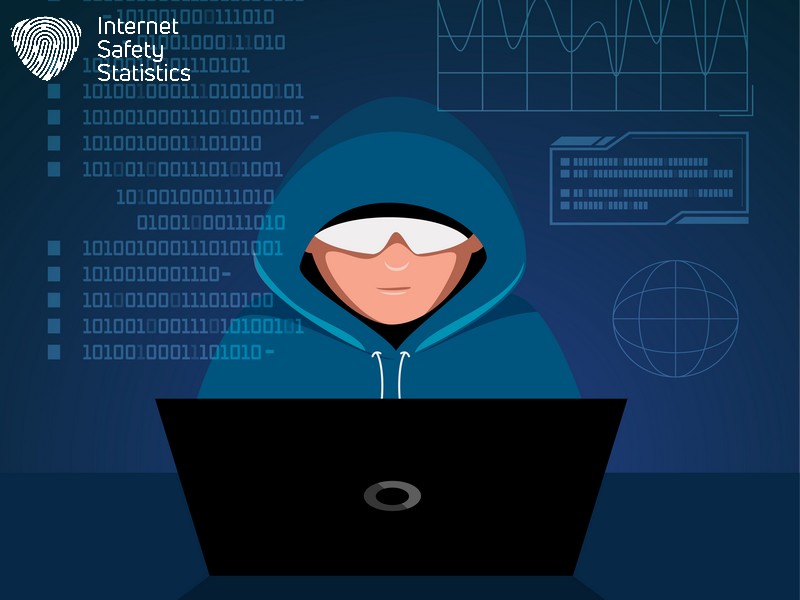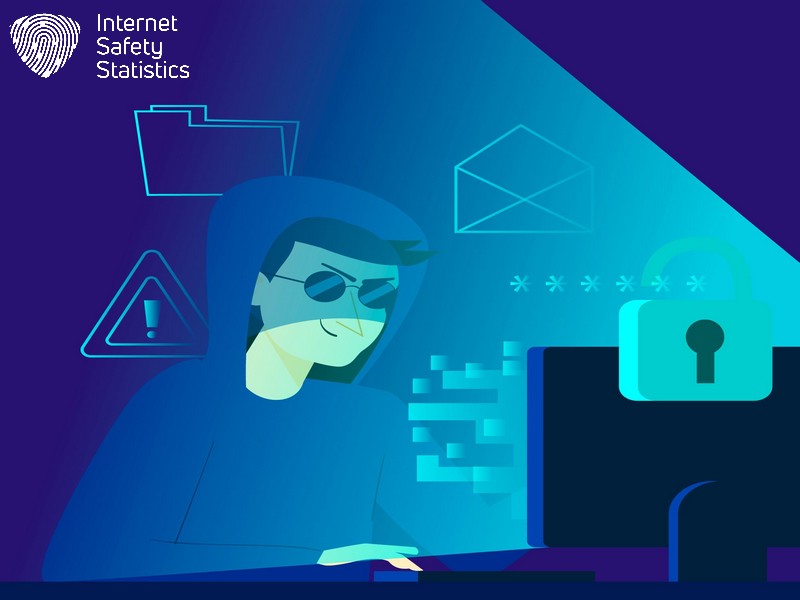
In a world where online threats are rising, keeping our cyberspaces safe is more vital than ever. Ethical hacking has emerged as a key player in shaping the rules we follow online. Ethical hackers directly contribute to developing robust cybersecurity measures by identifying systems’ vulnerabilities before malicious actors exploit them. Incorporating their findings into cybersecurity legislation strengthens legal frameworks by addressing newly discovered threats and outlining clear guidelines for ethical penetration testing, fostering a collaborative effort to secure the digital landscape.
This article will explore how ethical hacking contributes to legislative developments in cybersecurity, guiding us towards safer digital futures. Dive in to see hacking in a whole new light!
The Need for Ethical Hacking
Understanding the threat of cybercrime and the importance of preventive measures are essential in today’s digital world. Ethical hacking is crucial in identifying vulnerabilities and protecting against cyber attacks.
Understanding the Threat of Cybercrime
Cybercrime threatens everyone using the internet, from parents keeping family data safe to office workers protecting sensitive company information. Hackers are smart and creative, constantly finding new ways to break into systems. They steal identities, drain bank accounts, and even take control of household devices connected to the web.
Awareness is the first line of defence against these cyber threats. Knowing how hackers operate creates a shield around your digital life. Ethical hackers step into the shoes of cybercriminals to uncover weaknesses before they become crises. This approach helps shape cybersecurity laws that keep pace with ever-evolving online dangers.
Importance of Preventive Measures
To protect against cyber threats, it is vital to prioritise preventive measures. Implementing robust cybersecurity practices and staying updated on ethical hacking laws can significantly reduce the risk of cyber attacks.
Organisations and individuals must proactively address vulnerabilities to mitigate potential security breaches. By consenting to ethical hacking assessments, businesses can identify and rectify security weaknesses, contributing to overall legislative developments in cybersecurity.
Staying ahead of emerging threats is crucial for safeguarding sensitive data from cyber-attacks. Ethical hacking provides a proactive approach by identifying vulnerabilities before they are exploited, ultimately supporting the ongoing evolution of cybersecurity legislation.
The Role of Ethical Hacking in Cybersecurity Laws

Ethical hacking plays a crucial role in shaping cybersecurity laws by identifying vulnerabilities and providing valuable insights for legal frameworks. However, enforcement challenges still exist despite ethical hackers’ contributions to cybersecurity legislative developments.
Building a Legal Framework
Legislative developments in cybersecurity are essential for protecting against cyber threats. Ethical hacking shapes legal frameworks by identifying and addressing legal concerns and limitations. This helps to ensure that ethical hackers can operate within the bounds of the law, ultimately contributing to the prevention and mitigation of cyber attacks.
Ethical hacking regulations, information security laws, and cybersecurity compliance are all influenced by the proactive efforts of ethical hackers. By collaborating with legislators, ethical hackers help establish standards for cybersecurity best practices, ensuring businesses and individuals have clear guidelines for maintaining digital security.
Enforcement Challenges
Ethical hacking faces enforcement challenges due to the constantly evolving nature of cyber threats. Hackers are adept at finding new avenues of attack, making it challenging for legislators to keep up with the pace of change in cybersecurity laws.
The legal framework often struggles to adapt quickly enough to address emerging threats and technological advancements, resulting in a gap between legislative measures and the real-time demands of cybersecurity risk management. However, ethical hackers are crucial in bridging this gap by actively identifying vulnerabilities and providing valuable insights that can inform legislative developments.
The Evolution of Ethical Hacking
The evolution of ethical hacking has led to the introduction of certified ethical hackers who have played a significant role in contributing to legal developments in cybersecurity. Their expertise and knowledge have helped shape the legal framework for cyber defence and data breach response laws.
Introduction of Certified Ethical Hackers
Certified Ethical Hackers have become essential in today’s cybersecurity landscape, possessing the expertise to identify and address vulnerabilities within computer systems. Organisations are increasingly seeking these professionals to protect against evolving hacking techniques proactively.
Ethical hacking is a legal and pivotal component of safeguarding corporate networks, with individuals able to attain certification in this specialised field. This proactive approach allows businesses and individuals to consent to being hacked, ultimately contributing to the legislative developments in cybersecurity.
As ethical hackers play a crucial role in preventing cyber threats, organisations and individuals must understand their importance and consider integrating ethical hacking practices into their cybersecurity strategies.
Contribution to Legal Development
Ethical hacking plays a significant role in shaping cybersecurity laws by identifying legal concerns and limitations. The insights provided by ethical hackers help legislators understand the evolving nature of cyber threats and the need for proactive measures to safeguard digital assets.
This contributes to developing robust legal frameworks that address emerging cyber risks, ultimately enhancing the effectiveness of cybersecurity regulations.
Furthermore, ethical hacking assists in addressing vulnerabilities within organisations, contributing to the prevention and mitigation of cyber attacks. Ethical hackers play a crucial part in legislative developments aimed at fortifying computer systems and networks against potential breaches by actively identifying security weaknesses.
Best Practices for Individuals and Organisations

Implementing robust cybersecurity measures is essential to protect yourself and your organisation from cyber threats. Staying updated on ethical hacking laws and best practices can help avoid potential security breaches.
Implementing Robust Cybersecurity Measures
To ensure the safety of your personal and professional data, it’s vital to implement robust cybersecurity measures. Here are some best practices to consider:
- Regularly update all software and applications to patch security vulnerabilities and protect against cyber threats.
- Utilise strong, unique passwords for every account and enable multi-factor authentication to enhance security.
- Educate yourself and others on phishing scams, social engineering tactics, and other common cyber threats to stay vigilant online.
- Invest in reputable antivirus and anti-malware software to detect and prevent potential cyberattacks.
- Conduct regular vulnerability assessments to identify weaknesses in your system and take proactive steps to address them.
- Back up your data regularly to mitigate the impact of potential cyber breaches or ransomware attacks.
- Implement secure network configurations, firewalls, and encryption protocols to safeguard sensitive information from unauthorised access.
- Foster a culture of cybersecurity awareness within your organisation by providing training and resources for employees on how to recognise and respond to potential threats.
Staying Updated on Ethical Hacking Laws
Staying updated on ethical hacking laws is vital as cyber threats evolve. Here are some key points and best practices for staying abreast of ethical hacking laws:
- Review cybersecurity regulations and legal developments regularly to understand the latest requirements and compliance standards.
- Stay informed about ethical hacking standards and industry best practices to ensure your organisation’s security measures are current.
- Engage in ongoing training and education on ethical hacking laws to enhance your understanding of cybersecurity regulations.
- Join relevant security communities and forums to stay connected with professionals in the field, share insights, and gain knowledge about current legal regulations.
- Participate in workshops, webinars, and conferences on cybersecurity legislation to stay informed about emerging trends and changes in ethical hacking laws.
- Seek guidance from certified professionals or legal experts specialising in cybersecurity regulations to ensure comprehensive compliance with ethical hacking laws.
- Maintain a proactive approach by regularly assessing the impact of legislative developments on your organisation’s cybersecurity strategies and policies.
- Foster a culture of awareness within your organisation by educating employees about the importance of complying with ethical hacking laws and staying updated on relevant regulations.
- Collaborate with legal advisors and industry experts to address any uncertainties or complexities related to compliance with ethical hacking laws within your organisation.
- Continuously evaluate the effectiveness of your organisation’s cybersecurity measures against evolving legislative requirements, making necessary adjustments as needed.
The Future of Ethical Hacking

The future of ethical hacking holds potential for further advancements in cybersecurity measures. Collaboration between ethical hackers and legislators will be crucial in addressing the evolving cyber threats.
Potential for Further Advancements
Ethical hacking is poised for further advancements as technology continues to evolve. With the increasing demand for cybersecurity and new methods of cybercrime, ethical hacking will see ongoing developments in tools and techniques to combat emerging threats. Innovations in artificial intelligence and machine learning are expected to be integrated into ethical hacking practices, allowing for more robust identification and prevention of cyber attacks.
Future advancements in ethical hacking also entail a heightened collaboration between ethical hackers and legislators to establish comprehensive cybersecurity laws that address the evolving landscape of cyber threats. This collaboration will ensure that legal frameworks align with the latest technological advancements, providing clear guidelines for ethical hackers while maintaining robust protection against cybercriminals.
Importance of Collaboration between Ethical Hackers and Legislators
As ethical hacking continues to advance, it is vital for collaboration between ethical hackers and legislators to address the ever-evolving cyber threat landscape. Ethical hackers bring valuable insights into cybersecurity vulnerabilities and emerging attack methods, which can help develop robust legislative frameworks.
Their expertise provides a real-world understanding of cyber threats, enabling lawmakers to create effective regulations that enhance overall cybersecurity. This collaboration ensures that legal developments align with the latest cybersecurity challenges and technical advancements, facilitating proactive measures against potential cyber-attacks.
Effective collaboration between ethical hackers and legislators facilitates a streamlined approach in addressing critical security concerns. By working closely with lawmakers, ethical hackers can advocate for policies that promote responsible hacking practices while safeguarding against malicious activities.
Legislators benefit from understanding industry best practices and current trends in cybersecurity, allowing them to enact informed legislation that mitigates cyber risks effectively.
When considering the future of cybersecurity, it is evident that ethical hacking holds a key role in shaping legislative developments. By working with legislators, ethical hackers can provide valuable insights into the evolving nature of cyber threats and the best practices for preventing them. This partnership ensures that laws effectively address current and emerging cyber risks, ultimately contributing to a safer digital environment for individuals and organisations. The collaborative efforts between ethical hackers and legislators are essential for creating robust cybersecurity laws that address the ever-changing landscape of cyber threats.
FAQs
1. What is ethical hacking?
Ethical hacking involves computer security experts testing systems to find vulnerabilities that need fixing to prevent cyber attacks.
2. How does ethical hacking shape cybersecurity laws?
The hacker mindset and expertise contribute significantly to creating regulations focused on cyber attack prevention by informing lawmakers about emerging threats and effective mitigation strategies.
3. Can an increase in ethical hacking demand influence new cybersecurity measures?
Yes, as the demand for ethical hackers rises, their insights drive developments in legislation aimed at strengthening breach response and overall systems security.
4. Who benefits from the work of the security community in ethical hacking?
Everyone benefits from a robust security community; they help improve and uphold standards for sustaining advanced threat protection across all networked computer systems.
